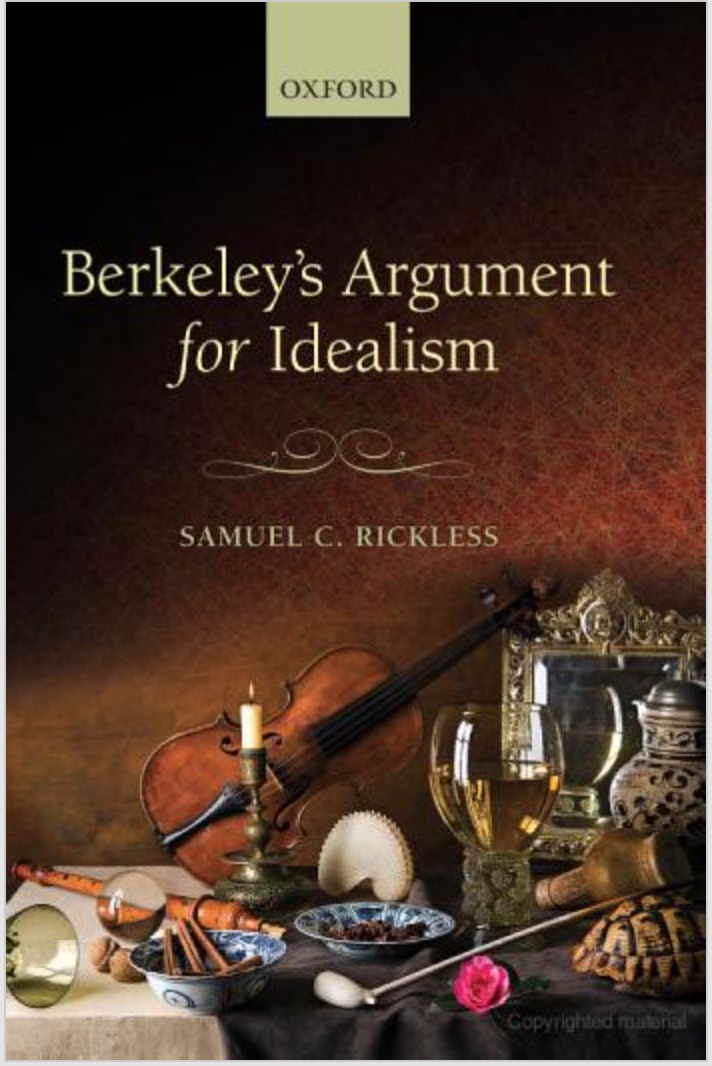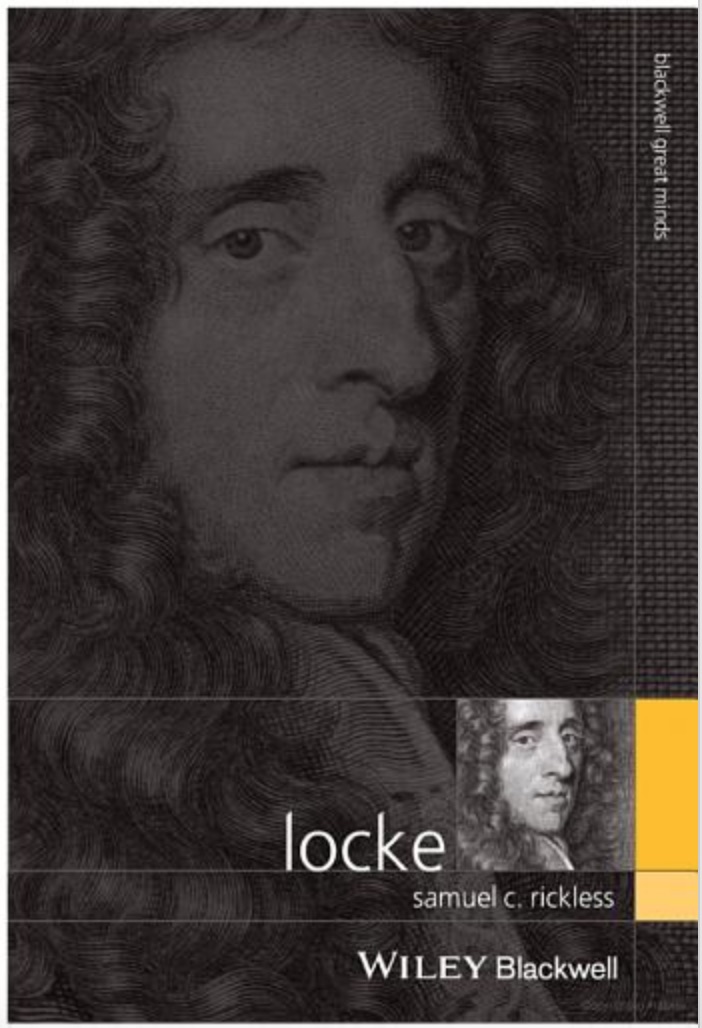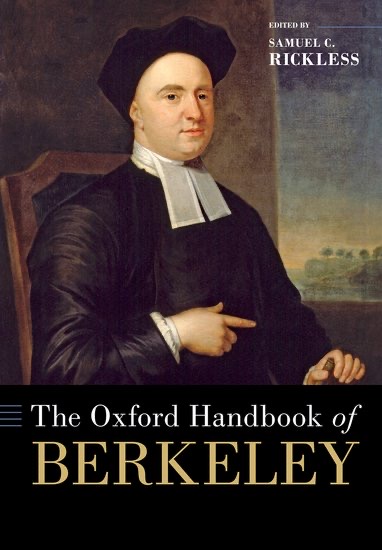Research
Books
Plato's Forms in Transition: A Reading of the Parmenides
Cambridge University Press, 2007
[CUP Website] [Amazon]

Berkeley's Argument for Idealism
Oxford University Press, 2013
[OUP Website] [Amazon]

Locke
Wiley-Blackwell, 2014
[Wiley Website] [Amazon]

The Ethics of War: Essays (with Saba Bazargan-Forward)
Oxford University Press, 2017
[OUP Website] [Amazon]

The Ethics and Law of Omissions (with Dana Kay Nelkin)
Oxford University Press, 2017
[OUP Website] [Amazon]

The Oxford Handbook of Berkeley
Oxford University Press, 2022
[OUP Website] [Amazon]

Articles
"Locke on Primary and Secondary Qualities"
Pacific Philosophical Quarterly (1997)
[Abstract] [Online Version]
"The Doctrine of Doing and Allowing"
Philosophical Review (1997)
[Abstract] [Online Version]
"Socrates' Moral Intellectualism"
Pacific Philosophical Quarterly (1998)
[Abstract] [Online Version]
"The Semantic Function of Chained Pronouns"
Analysis (1998)
[Abstract] [Online Version]
"How Parmenides Saved the Theory of Forms"
Philosophical Review (1998)
[Abstract] [Online Version]
"Locke on the Freedom to Will"
Locke Newsletter (now Locke Studies) (2000)
[Abstract] [Final Version]
"Miranda, Dickerson, and the Problem of Actual Innocence"
Criminal Justice Ethics (2000)
[Online Version]
"How to Solve Blum's Paradox" (with Dana Kay Nelkin)
Analysis (2001)
[Online Version]
"Religious Arguments and the Duty of Civility"
Public Affairs Quarterly (2001)
[Abstract] [Online Version]
"Gideon Yaffe's Liberty Worth the Name: Locke on Free Agency"
Locke Studies (2001)
[Final Version]
"Warfield's New Argument for Incompatibilism" (with Dana Kay Nelkin)
Analysis (2002)
[Online Version]
"From the Good Will to the Formula of Universal Law"
Philosophy and Phenomenological Research (2004)
[Abstract] [Online Version]
"The Cartesian Fallacy Fallacy"
Noûs (2005)
[Abstract] [Online Version]
"Locke's Polemic Against Nativism"
In The Cambridge Companion to Locke's Essay Concerning Human Understanding (2007)
[Penultimate Version]
"The Coherence of Orthodox Fourth Amendment Jurisprudence"
George Mason University Civil Rights Law Journal (2005)
[Abstract] [Final Version]
"A Synthetic Approach to Legal Adjudication"
San Diego Law Review (2005)
[Abstract] [Online Version]
"Polygamy and Same-Sex Marriage: A Response to Calhoun"
San Diego Law Review (2005)
[Online Version]
"Binding Arguments and Hidden Variables" (with Jonathan Cohen)
Analysis (2007)
[Online Version]
"Plato's Parmenides"
Stanford Encyclopedia of Philosophy (2007, latest revision 2020)
[Link]
"Is Locke's Theory of Knowledge Inconsistent?"
Philosophy and Phenomenological Research (2008)
[Abstract] [Online Version]
"The Right to Privacy Unveiled"
San Diego Law Review (2007)
[Abstract] [Online Version]
"Marc Hight's Idea and Ontology: An Essay in Early Modern Metaphysics of Ideas"
Berkeley Studies (2009)
[Online Version]
"Plato's Definition(s) of Sophistry"
Ancient Philosophy (2010)
[Abstract] [Final Version]
"The Relation Between Anti-Abstractionism and Idealism in Berkeley's Metaphysics"
British Journal for the History of Philosophy (2012)
[Abstract] [Online Version]
"Should Philosophers Become Public Intellectuals?"
In Global Academe: Engaging Intellectual Discourse (2012)
[Penultimate Version]
"The Moral Status of Enabling Harm"
Pacific Philosophical Quarterly (2011)
[Abstract] [Online Version]
"Will and Motivation"
In The Oxford Handbook of British Philosophy in the Seventeenth Century (2013)
[Final Version]
"Qualities"
In The Routledge Companion to Seventeenth Century Philosophy (2017)
[Penultimate Version]
"Why and How to Fill an Unfilled Proposition"
Theoria (2012)
[Abstract] [Online Version]
"Georges Dicker's Berkeley's Idealism: A Critical Examination"
Berkeley Studies (2012)
[Online Version]
"Hume's Theory of Pity and Malice"
British Journal for the History of Philosophy (2013)
[Abstract] [Online Version]
"Where Exactly Does Berkeley Argue for the Existence of God in the Principles?"
History of Philosophy Quarterly (2013)
[Abstract] [Online Version]
"Locke on Active Power, Freedom, and Moral Agency"
Locke Studies (2013)
[Penultimate Version] [Online Version]
"The Contrast-Insensitivity of Knowledge Ascriptions"
Philosophy and Phenomenological Research (2014)
[Abstract] [Online Version]
"Three Cheers for Double Effect" (with Dana Kay Nelkin)
Philosophy and Phenomenological Research (2014)
[Abstract] [Online Version]
"Locke's 'Sensitive Knowledge': Knowledge or Assurance?"
Oxford Studies in Early Modern Philosophy, Volume 7 (2016)
[Abstract] [Penultimate Version]
"So Close, Yet So Far: Why Solutions to the Closeness Problem for the Doctrine of Double Effect Fall Short" (with Dana Kay Nelkin)
Noûs (2015)
[Abstract] [Online Version]
"Berkeley's A Treatise Concerning the Principles of Human Knowledge"
In The Bloomsbury Companion to Berkeley (Bloomsbury, 2017)
"The Relevance of Intention to Criminal Wrongdoing" (with Dana Kay Nelkin)
Criminal Law and Philosophy (2016)
[Abstract] [Online Version]
"Are Locke's Persons Modes or Substances?"
In Locke and Leibniz on Substance and Identity (Routledge, 2015)
[Abstract] [Penultimate Version]
"Critical Appreciation of Jonathan Schaffer's "The Contrast-Sensitivity of Knowledge Ascriptions""
Social Epistemology Review and Reply Collective (2015)
[Online Version]
"Berkeley's Argument for the Existence of God in the Three Dialogues"
In Berkeley's Three Dialogues: New Essays (Oxford University Press, 2018)
[Abstract] [Penultimate Version]
"Locke on Freedom"
Stanford Encyclopedia of Philosophy (2015)
[Link]
